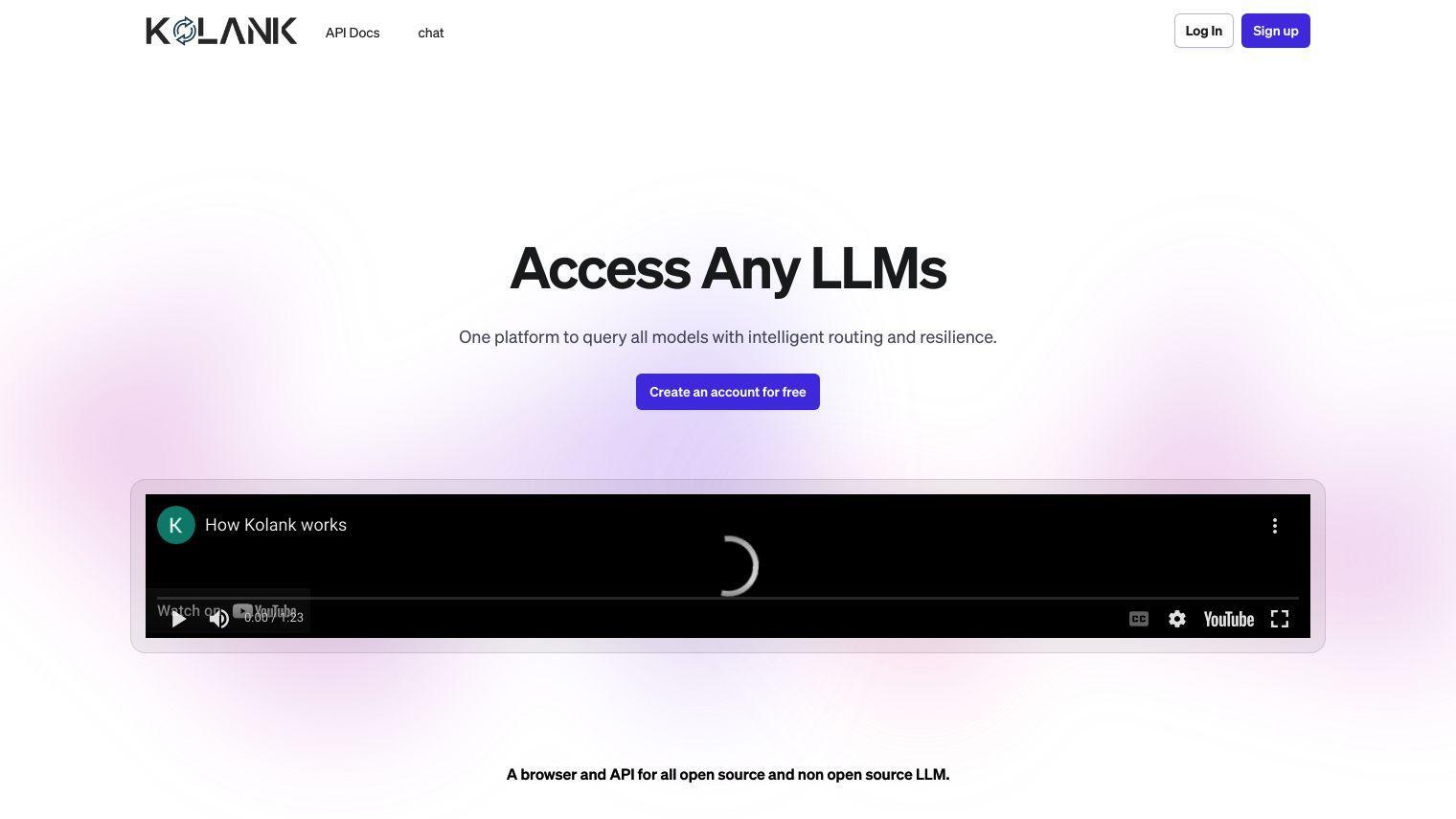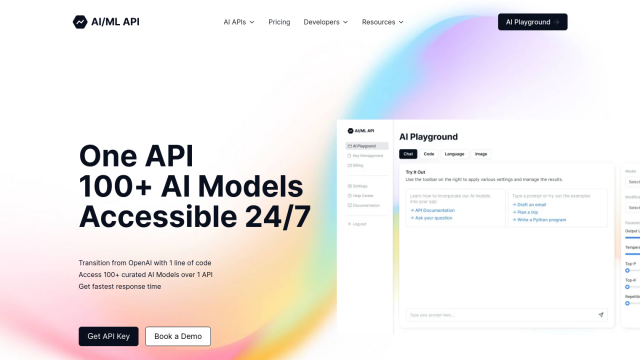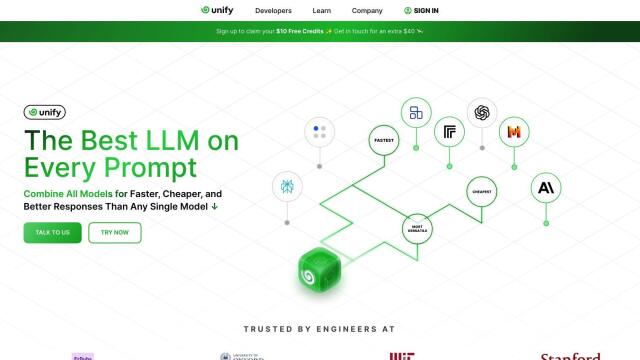Kolank is a platform designed to make it easier to use multiple Large Language Models (LLMs). It offers a single API and browser interface for querying a range of open-source and proprietary LLMs, including OpenAI, Claude and PaLM, and others. The service is designed to free developers from the hassle of obtaining and paying for individual access to each model so they can easily switch among them with relatively little code changes.
Among Kolank's abilities are smart routing and resilience. The service sends every query to the best model for answering it, so developers don't have to worry about low-quality results or flights of fancy from AI systems. Kolank also can cut costs by sending queries to cheaper models when possible. If a query can be answered by a smaller model, it'll be sent there to cut costs.
To ensure high-quality results, Kolank automatically reroutes queries if an answer is taking too long, if a model is down or if it's encountering content moderation problems. That means developers get answers fast and reliably. The service also makes development easier with a unified API for querying any supported AI model, which saves developers time and effort.
Kolank's dynamic query routing algorithm assesses each query to figure out which model will return an answer most quickly and with the highest quality. That helps with low latency and reliable results.
Kolank is geared for developers who want to use multiple LLMs in their apps but don't want to handle individual APIs and subscriptions. The unified interface for all models makes development easier and means developers can get more consistent results.
Developers can sign up to use the API and start building sustainable, cost-effective AI applications. The service also offers a way for developers with their own AI models to monetize their work, turning their ideas into a business.
Kolank is a flexible and sustainable way for developers to use multiple LLMs, getting good results without the cost and complexity of building their own system.
Published on June 25, 2024
Related Questions
Tool Suggestions
Analyzing Kolank...







